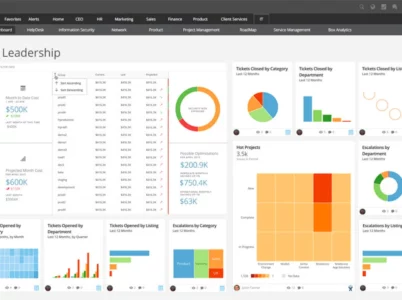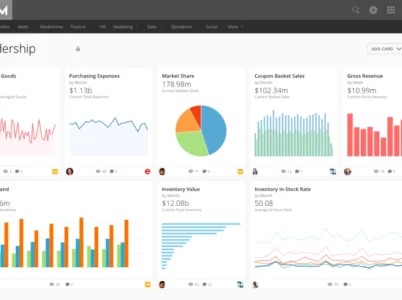Zoho Analytics, a robust business intelligence and analytics platform, plays a pivotal role in empowering businesses to unlock the full potential of their data. With its intuitive interface, powerful features, and comprehensive capabilities, Zoho Analytics enables users to analyze data, visualize trends, generate interactive reports, and derive actionable insights, ultimately contributing to business success. This article is designed to provide a deep dive into the realm of Zoho Analytics, exploring its key features, benefits, pricing options, use cases, and integration capabilities.

- Data Integration: Domo supports the integration of data from various sources, including databases, cloud applications, spreadsheets, and more. The platform provides pre-built connectors and APIs to streamline the data integration process.
- Data Preparation and Modeling: Domo offers tools for data cleansing, transformation, and modelling. Users can clean and transform raw data to ensure its accuracy and relevance for analysis.
- Data Visualisation: Domo's data visualisation capabilities allow users to create visually appealing and interactive charts, graphs, and dashboards. Users can customise the appearance and layout of visualisations to meet specific requirements.
- Advanced Analytics: Domo provides advanced analytics features, including predictive analytics, machine learning, and statistical modeling. These capabilities enable organisations to uncover patterns, trends, and correlations within their data.
- Collaboration and Sharing: Domo enables collaboration and data sharing across teams and departments. Users can share dashboards, reports, and insights with colleagues, fostering a data-driven culture within the organisation.
Furthermore, Domo’s dashboards can be accessed from various devices, including desktops, tablets, and smartphones, ensuring that users can stay connected to their data anytime, anywhere. Real-time data updates and alerts help organisations stay informed about critical changes and make timely decisions.
- Microsoft Power BI: Power BI offers powerful data visualisation and analytics capabilities and is known for its seamless integration with other Microsoft products. It provides a user-friendly interface and a range of pricing options suitable for organisations of all sizes.
- QlikView: QlikView is recognised for its associative data model, allowing users to explore data freely without predefined paths. It offers interactive dashboards, advanced analytics, and data discovery capabilities.
- Looker: Looker is a cloud-based platform that focuses on data exploration and collaboration. It provides a range of data visualisation and analytics features and offers a flexible pricing model.

In today's data-centric business landscape, organizations are continuously exploring avenues to extract valuable insights from their data, facilitating informed decision-making and fostering growth. Domo, as a cloud-based business intelligence and analytics platform, stands as a solution designed to empower businesses with robust capabilities in data visualization, reporting, and analytics.
- Ease of Use: Domo is known for its user-friendly interface and intuitive drag-and-drop functionality, making it accessible to users with varying levels of technical expertise. Tableau, on the other hand, is recognised for its powerful analytics capabilities but may require more technical proficiency to utilise its full potential.
- Scalability: Domo is designed to handle large volumes of data and is suitable for organisations of all sizes. Tableau, while also scalable, may require additional resources and infrastructure to handle enterprise-level data volumes effectively.
- Integration Capabilities: Both Domo and Tableau offer robust integration capabilities with various data sources, allowing organisations to connect and consolidate data from multiple systems. However, Domo has a wider range of native connectors and supports direct integration with popular cloud-based applications.
Mode Analytics, developed by Mode Analytics Inc., stands out as a robust analytics solution that empowers users to efficiently explore, analyze, and visualize data. This article aims to comprehensively explore various dimensions of Mode Analytics, encompassing crucial elements such as pricing, reviews, tutorials, dashboard capabilities, features, data visualization capabilities, the implementation process, available training options, a comparative analysis with Tableau, and insights into the download process.
Logi Analytics, a prominent embedded analytics platform, equips organizations with tools to create interactive dashboards, reports, and visualizations that facilitate informed decision-making. This article will delve into various facets of Logi Analytics, encompassing essential elements such as pricing, reviews, tutorials, dashboard capabilities, features, data analytics functionalities, the implementation process, available training options, a comparative analysis with Tableau, and insights into the download process.






